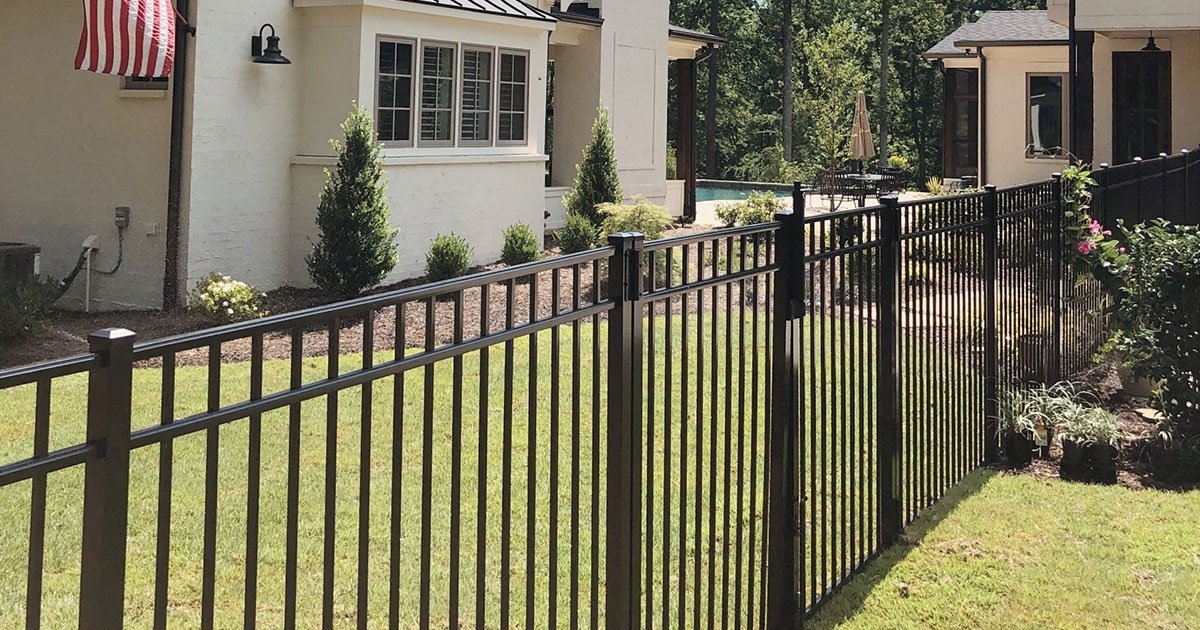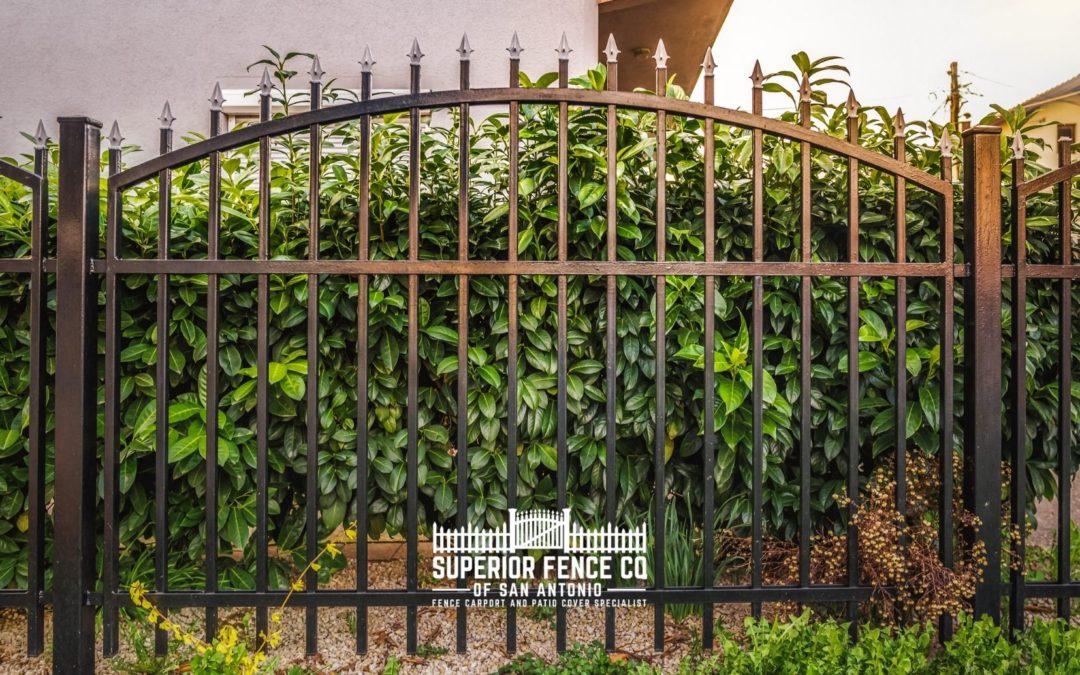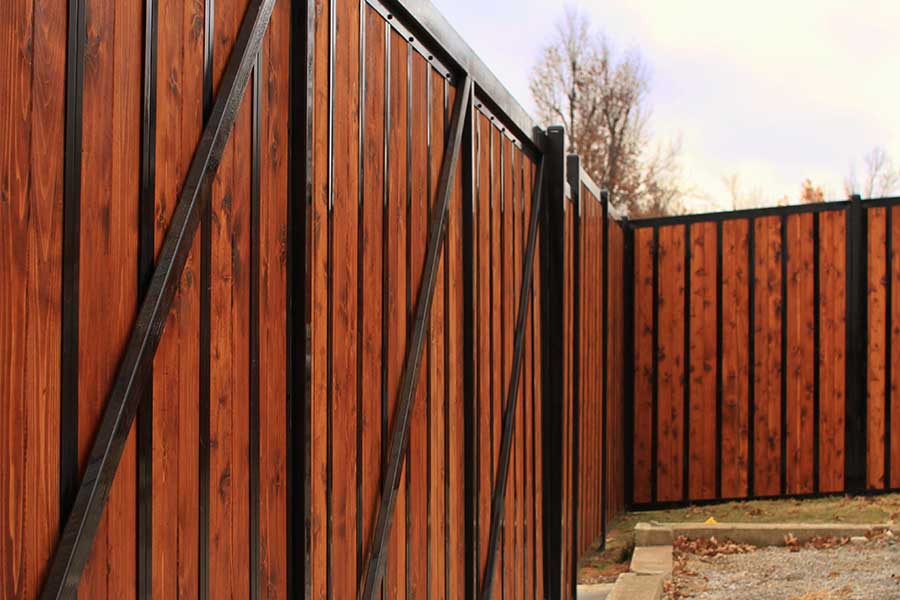All Categories
Featured
When you determine to mount a fencing around your property, it's vital to understand the license needs details to your location. While mounting a fence can appear like a straightforward home renovation job, regional legislations and regulations should be complied with to make sure the installation is lawful and certified. Failing to protect the proper authorizations could lead to fines and even require you to eliminate the fencing. Right here's a thorough appearance at the licenses you might need for fencing setup.
Why Do You Need a Permit for Fence Installation? A fence is greater than just a barrier between residential properties-- it can influence security, residential or commercial property worth, appearances, and even environmental conditions. City governments need authorizations to ensure that fences satisfy particular criteria and do not cause issues for utilities, next-door neighbors, or the area as a whole. Authorizations additionally make certain that the setup conforms with zoning legislations, developing codes, and safety and security laws.
![]()
Kinds of Licenses You May Require. Building License. A structure license is one of the most usual permits needed for fencing installment. If you're developing a fencing over a specific height (generally over 6 feet), you'll likely need a structure authorization.
Zoning Authorization. A zoning authorization guarantees your fence conforms with height, place, and trouble laws. Fences may require to be set back a certain range from walkways, roadways, or property lines to avoid blockage or disturbance with energies.
HOA Approval. If your residential or commercial property is part of a house owners organization (HOA), you might need to seek approval prior to setting up a fence. HOAs commonly have standards that govern the visual appeals and framework of fences to ensure they are in harmony with the neighborhood. You may need to submit your prepare for authorization, and the HOA may limit fencing elevation, design, or product.
Specialty Permits. In some areas, there may be extra licenses needed for specific situations. For instance, if your fencing is near a safeguarded environmental area or situated in a flooding zone, you might need to get specialized authorizations connected to ecological effect. If the fencing is in an area with below ground energies, you might need to get clearance to avoid harmful pipelines or wires.
![]()
Easement or Utility Firm Authorization. Prior to mounting a fence, it's important to check whether the property includes an easement, such as an energy easement, which could affect where you can put your fence. Easements are locations of land assigned for public or exclusive utilities, and you might need approval from the utility business or other authority to build within this area.
How to Discover What Allows You Need. To make sure that you're adhering to all the required regulations, here's just how you can determine the certain licenses needed for your fence installation:
![]()
See Your Regional Government Workplace: The initial step is to get in touch with your neighborhood structure or zoning division. Numerous cities and areas have standards available online that specify what sorts of authorizations are required for fencing installation. If not, calling or going to the office face to face can assist clear up the procedure. Inspect Your City's Web site: Lots of districts give details regarding fencing setups and the permits needed with their main sites. Some internet sites even allow you to submit applications online. Get In Touch With a Fencing Setup Specialist: If you're not exactly sure concerning local laws, a specialist fencing professional can assist. They recognize with the allowing procedure and can guide you via the steps. The Effects of Not Obtaining a Permit. Failing to secure the essential licenses before installing a fence can lead to substantial effects. You may be fined or needed to get rid of the fencing totally. Furthermore, if you decide to offer your home in the future, the absence of an authorization might discourage prospective purchasers, as they might see it as a sign that the home is not compliant with local legislations. Making sure that you have the correct authorizations will save you time, money, and headaches in the long run.
Conclusion. Installing a fence around your domestic property can add both protection and curb appeal, however it is essential to ensure you're complying with the legal steps in the process. Researching the particular permit requirements for your area, consisting of structure licenses, zoning guidelines, HOA approval, and utility authorizations, will aid guarantee your fence setup goes efficiently. Taking the time to recognize these needs now can conserve you from costly errors and prospective lawful concerns down the line.
Why Do You Need a Permit for Fence Installation? A fence is greater than just a barrier between residential properties-- it can influence security, residential or commercial property worth, appearances, and even environmental conditions. City governments need authorizations to ensure that fences satisfy particular criteria and do not cause issues for utilities, next-door neighbors, or the area as a whole. Authorizations additionally make certain that the setup conforms with zoning legislations, developing codes, and safety and security laws.

Kinds of Licenses You May Require. Building License. A structure license is one of the most usual permits needed for fencing installment. If you're developing a fencing over a specific height (generally over 6 feet), you'll likely need a structure authorization.
Zoning Authorization. A zoning authorization guarantees your fence conforms with height, place, and trouble laws. Fences may require to be set back a certain range from walkways, roadways, or property lines to avoid blockage or disturbance with energies.
HOA Approval. If your residential or commercial property is part of a house owners organization (HOA), you might need to seek approval prior to setting up a fence. HOAs commonly have standards that govern the visual appeals and framework of fences to ensure they are in harmony with the neighborhood. You may need to submit your prepare for authorization, and the HOA may limit fencing elevation, design, or product.
Specialty Permits. In some areas, there may be extra licenses needed for specific situations. For instance, if your fencing is near a safeguarded environmental area or situated in a flooding zone, you might need to get specialized authorizations connected to ecological effect. If the fencing is in an area with below ground energies, you might need to get clearance to avoid harmful pipelines or wires.

Easement or Utility Firm Authorization. Prior to mounting a fence, it's important to check whether the property includes an easement, such as an energy easement, which could affect where you can put your fence. Easements are locations of land assigned for public or exclusive utilities, and you might need approval from the utility business or other authority to build within this area.
How to Discover What Allows You Need. To make sure that you're adhering to all the required regulations, here's just how you can determine the certain licenses needed for your fence installation:

See Your Regional Government Workplace: The initial step is to get in touch with your neighborhood structure or zoning division. Numerous cities and areas have standards available online that specify what sorts of authorizations are required for fencing installation. If not, calling or going to the office face to face can assist clear up the procedure. Inspect Your City's Web site: Lots of districts give details regarding fencing setups and the permits needed with their main sites. Some internet sites even allow you to submit applications online. Get In Touch With a Fencing Setup Specialist: If you're not exactly sure concerning local laws, a specialist fencing professional can assist. They recognize with the allowing procedure and can guide you via the steps. The Effects of Not Obtaining a Permit. Failing to secure the essential licenses before installing a fence can lead to substantial effects. You may be fined or needed to get rid of the fencing totally. Furthermore, if you decide to offer your home in the future, the absence of an authorization might discourage prospective purchasers, as they might see it as a sign that the home is not compliant with local legislations. Making sure that you have the correct authorizations will save you time, money, and headaches in the long run.
Conclusion. Installing a fence around your domestic property can add both protection and curb appeal, however it is essential to ensure you're complying with the legal steps in the process. Researching the particular permit requirements for your area, consisting of structure licenses, zoning guidelines, HOA approval, and utility authorizations, will aid guarantee your fence setup goes efficiently. Taking the time to recognize these needs now can conserve you from costly errors and prospective lawful concerns down the line.
Latest Posts
Picking the Right Monitoring Account for Your Requirements
Published Apr 19, 25
1 min read
Auto Repair Services: Professional Vehicle Care & Fixes !
Published Apr 19, 25
2 min read
Audio-Visual Services for Unforgettable Events
Published Apr 19, 25
1 min read